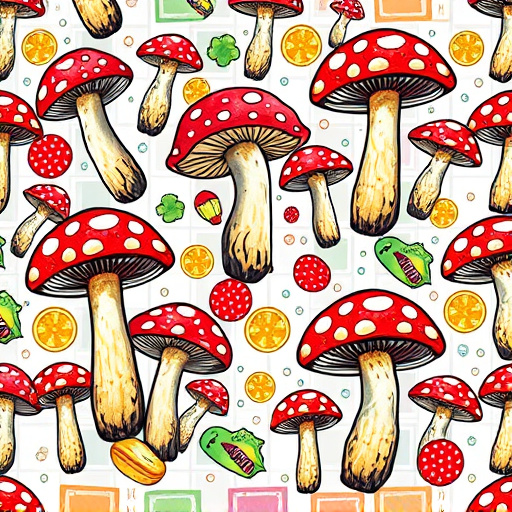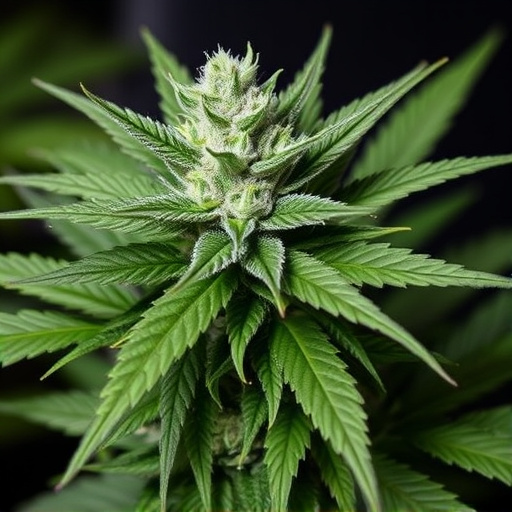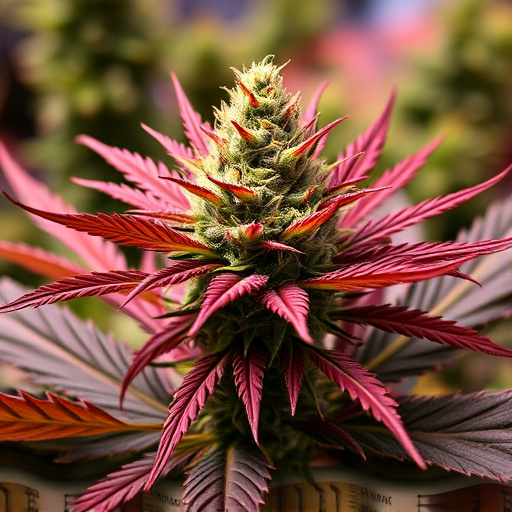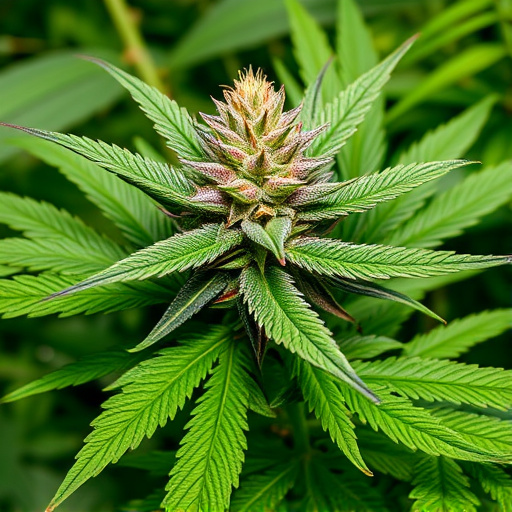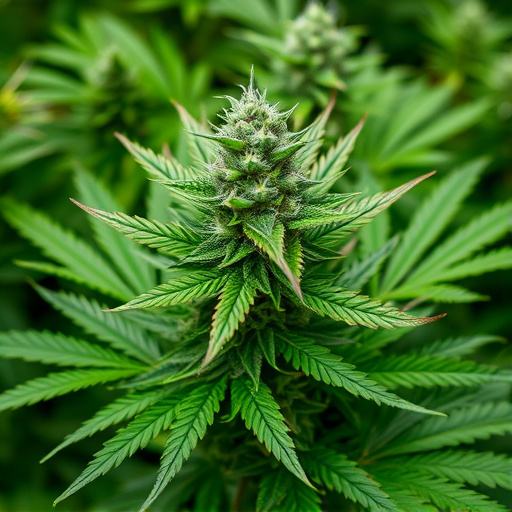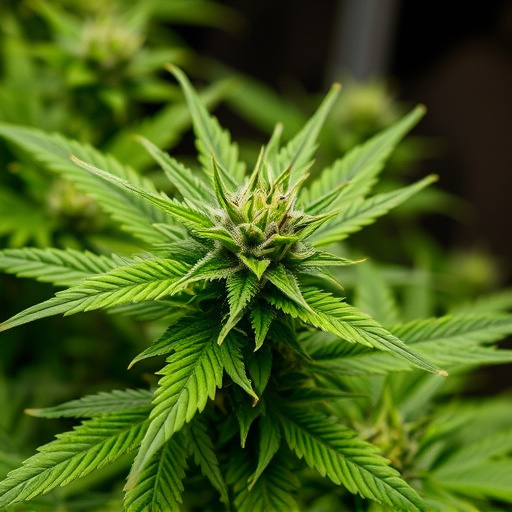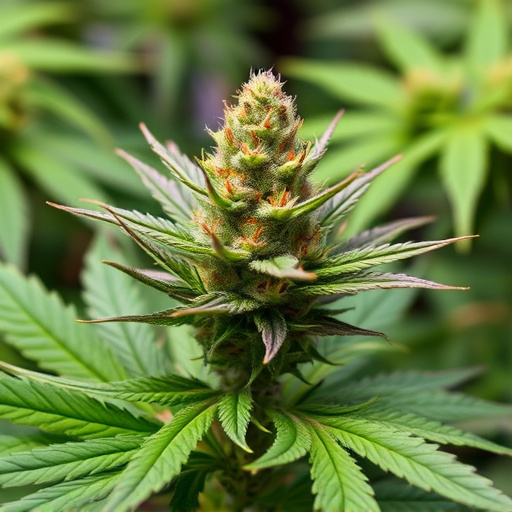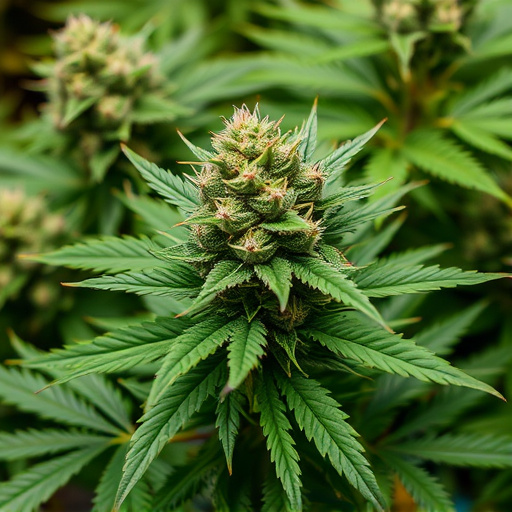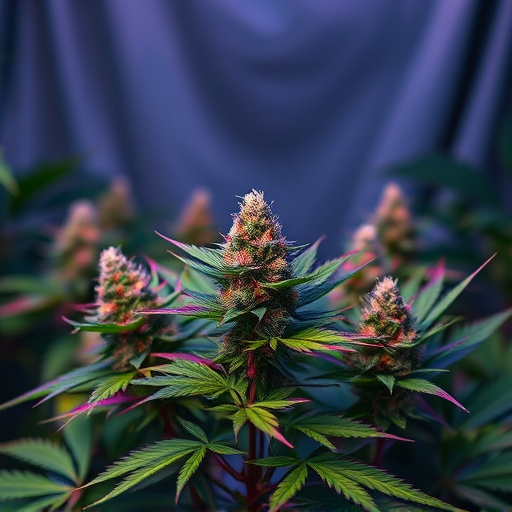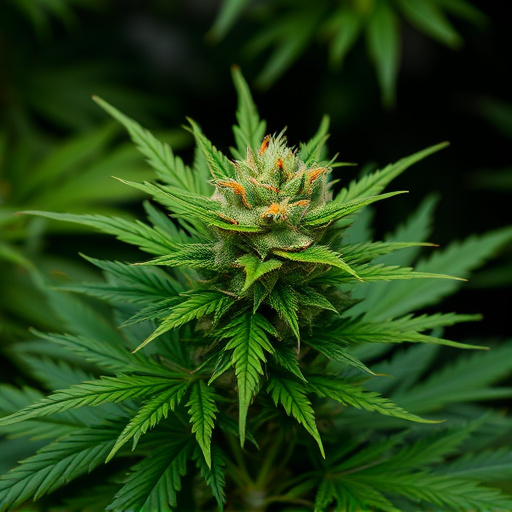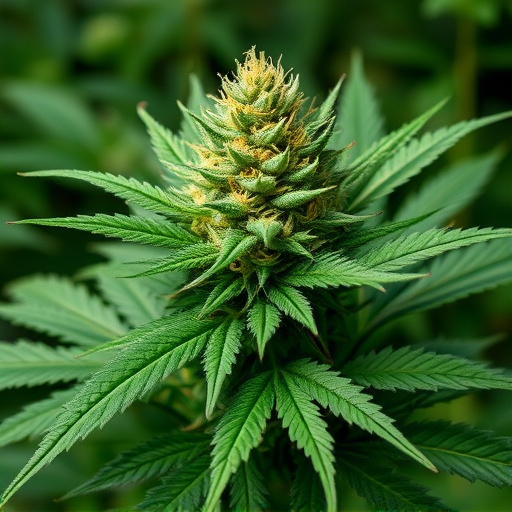High THC cannabis strains, while attracting attention for their potential mental health benefits due to interaction with the endocannabinoid system, carry significant risks. Variations in individual biochemistry and strain composition lead to varying effects, from positive mood changes to anxiety, paranoia, or psychotic episodes. Experts emphasize the need for guidance, ongoing research, and careful consideration when using high THC strains for mental health management, particularly for individuals with pre-existing conditions or substance abuse history. Consulting healthcare professionals is crucial before incorporating these strains into any mental health regimen.
Can cannabis flower be a game-changer in mental health management? With growing interest in its therapeutic potential, understanding its effects becomes crucial. This article explores the role of cannabis, particularly focusing on high THC strains and their impact on mental well-being. We’ll delve into the chemical composition, analyze recent studies, and discuss potential benefits while considering important factors for safe use. By examining these aspects, we aim to provide insights into whether cannabis flower could offer new hope for managing mental health conditions.
- Understanding Cannabis Flower and Its Chemical Composition
- The Impact of High THC Strains on Mental Health
- Potential Benefits and Considerations for Use
Understanding Cannabis Flower and Its Chemical Composition
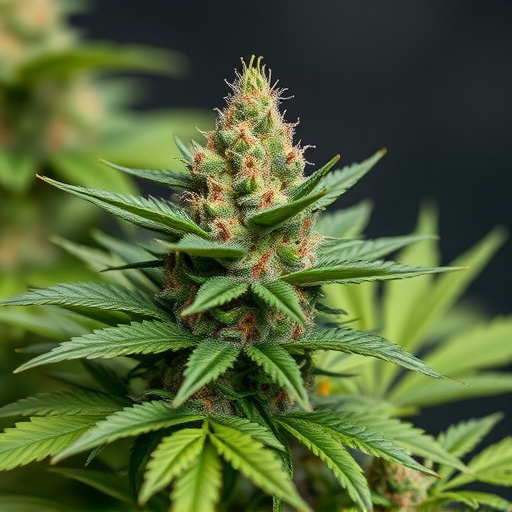
Cannabis flower, a product derived from the cannabis plant, has gained significant attention for its potential therapeutic effects on mental health. At the heart of this discussion lies understanding the chemical composition of cannabis, with a particular focus on high THC strains. Tetrahydrocannabinol (THC), one of over 100 cannabinoids found in cannabis, is known to interact with the endocannabinoid system in our bodies, playing a role in regulating mood, appetite, and memory. High THC cannabis strains are renowned for their potent psychotropic effects, offering both potential benefits and risks for mental health management.
The chemical makeup of these strains, characterized by elevated THC levels, can lead to intense experiences, including heightened senses and altered perceptions. While some individuals report stress reduction and improved mood after consuming high THC cannabis, others may encounter anxiety, paranoia, or even more severe psychotic episodes. As such, the use of high THC cannabis for mental health purposes requires careful consideration, expert guidance, and ongoing research to balance its therapeutic potential with adverse effects.
The Impact of High THC Strains on Mental Health
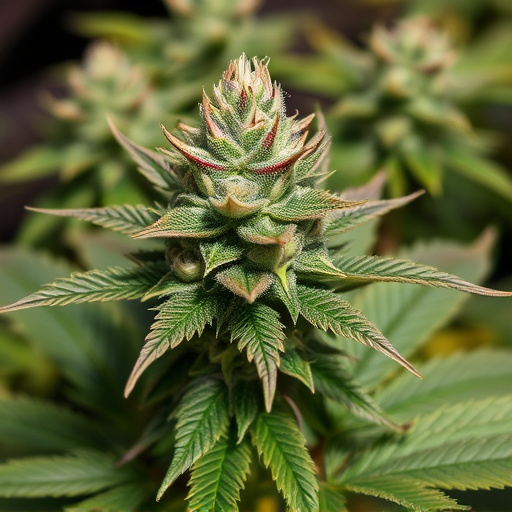
High THC cannabis strains have been a topic of interest and debate in the mental health community. While THC, the primary psychoactive compound in cannabis, is known to provide various therapeutic benefits, its impact on mental health, especially in individuals with pre-existing conditions, is complex. High concentrations of THC can induce anxiety, paranoia, and psychosis in some users, particularly those who are new to cannabis or have a history of mental health issues.
These adverse effects are often linked to the powerful mind-altering properties of high THC strains, which can distort perceptions and trigger emotional responses. Research suggests that individuals with schizophrenia or bipolar disorder may be at higher risk of experiencing exacerbated symptoms when using these strains. Therefore, it’s crucial for users, especially those seeking cannabis for mental health purposes, to choose low THC, high CBD strains or consult healthcare professionals for personalized guidance on safe and effective cannabis use.
Potential Benefits and Considerations for Use
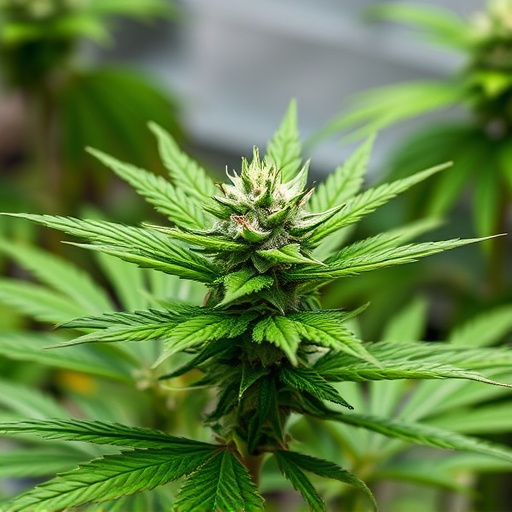
Cannabis flower, particularly those with high THC content, has sparked interest for its potential mental health benefits. Studies suggest that THC, the primary psychoactive compound in cannabis, can interact with the endocannabinoid system in our brains to modulate mood, reduce anxiety, and alleviate symptoms of depression in some individuals. Certain high THC cannabis strains are known for their ability to induce a sense of calm and relaxation, which may be beneficial for managing stress-related disorders.
However, it’s crucial to consider that cannabis is not a one-size-fits-all solution. Its effects can vary greatly depending on individual biochemistry, tolerance levels, and the specific chemical composition of the strain. Moreover, misuse or reliance on high THC strains could lead to adverse effects like anxiety, paranoia, or cognitive impairment in susceptible individuals. Therefore, it’s essential to consult healthcare professionals before incorporating cannabis into any mental health regimen, especially for those with pre-existing conditions or a history of substance abuse.
While high THC cannabis strains offer potential mental health benefits, their use isn’t without considerations. The impact of these powerful compounds can vary greatly among individuals, and long-term effects require further research. Responsible, informed use, alongside professional guidance, may allow some people to harness the therapeutic properties of high THC cannabis while mitigating potential risks.

